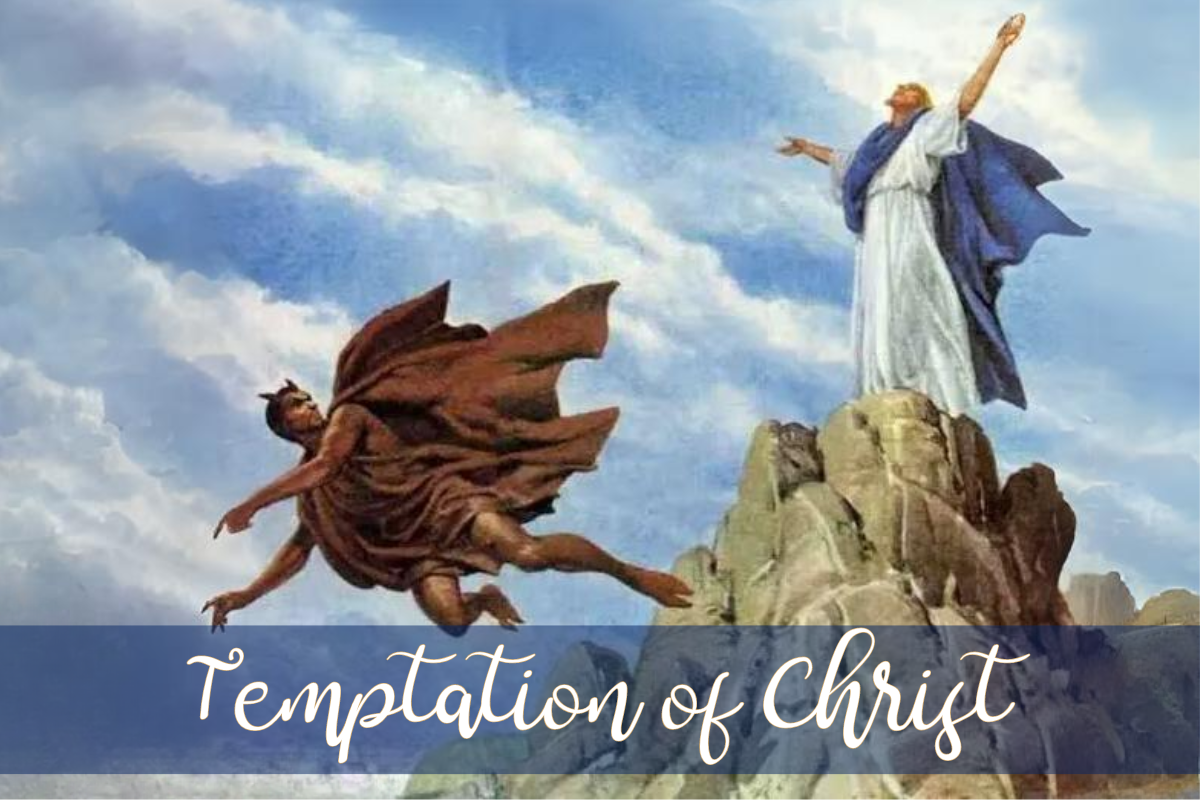Every year on the First Sunday of Lent, we recall the temptation of Jesus in the desert. Led by the Holy Spirit, he retreats into the solitude of the wilderness for forty days of prayer, fasting, and private reflection prior to his public ministry. The Catechism of the Catholic Church explains: “At the end of this time Satan tempts him three times, seeking to compromise his filial attitude toward God.” (CCC 538). During his struggles, Jesus relies on his Father for the ultimate satisfaction of his hunger. As Jesus resists each temptation, he responds to the devil with a quote from the Book of Deuteronomy. “Such a battle and such a victory become possible only through prayer. It is by his prayer that Jesus vanquishes the tempter” (CCC 2849).
Recognizing our broken condition as sinners, we begin our Lenten season with this important reminder: “For we do not have a high priest who is unable to sympathize with our weaknesses, but one who has been tempted in every way as we are, yet without sin” (Hebrews 4:15). C. S. Lewis observes that “Christ, because He was the only man who never yielded to temptation, is also the only man who knows to the full what temptation means.”
Jesus endures the tests of his temptations not so that we do not face temptation, but rather so we know how to face temptation. Pope Saint John Paul II reminds us: “There is no evil to be faced that Christ does not face with us. There is no enemy that Christ has not already conquered. There is no cross to bear that Christ has not already borne for us, and does not now bear with us.”
When evil is near, our first response should be driven by our faith. Study scripture for guidance, turn to God in prayer, and know that Jesus understands and accompanies us. Prior to temptation, however, we should remain ever-watchful. Saint Thomas Aquinas notes that Jesus allows himself to experience temptation not just to teach us by example, but also to serve as a warning. Temptation is coming to all of us.
How we respond to that temptation determines if we grow in grace or shrink in sin. Pope Benedict XVI reveals: “The patience and humility required to defeat the enemy come by following Christ every day and from learning to build our life not outside of him or as if he did not exist, but in him and with him, because he is the source of true life.” When we open our hearts to the Lord, we become single-focused on life with God and better prepared to overcome any trials.
This week, think about how you can handle temptation like Jesus does. Do you humbly seek divine assistance, or do you boldly rely on your own willpower? Do you dismiss Satan with support from scripture, or do you use pride to prove yourself? Are you able to place eternal rewards over temporal ones? Take comfort in the wisdom of Saint Alphonsus Liguori: “He who trusts himself is lost. He who trusts in God can do all things.”




